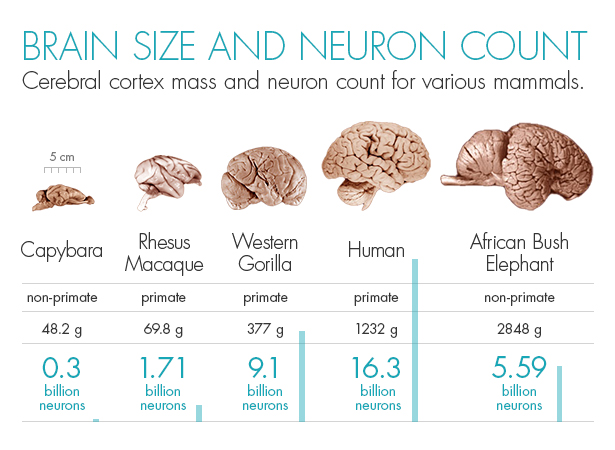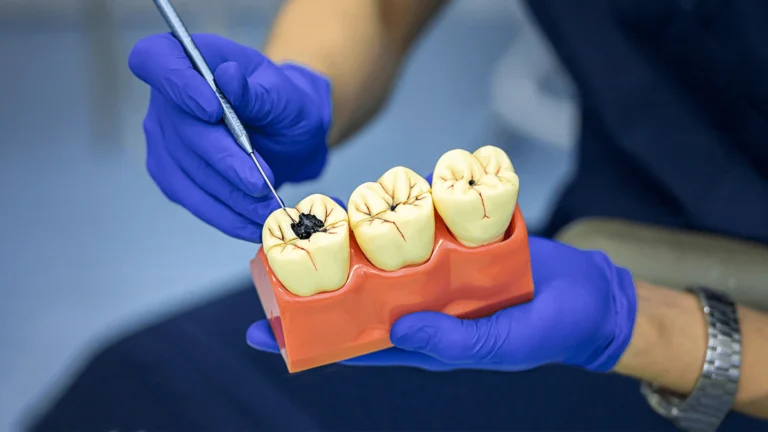Viande Humaine ou Mythe Humain ?- La Cognition Animale
Nous ne sommes pas les espèces les plus intelligentes si nous mesurons scientifiquement la cognition animale. La partie cérébrale néocorticale du globicéphale noir contient plus de neurones que le nôtre.
Milos Pokimica
Écrit par : Milos Pokimica
Examiné Médicalement Par : Dr. Xiùying Wáng, M.D.
Mis à jour le 9 juin 2023Avez-vous déjà pensé à ce que pense votre chien ? Ou comment les dauphins apprennent à coopérer pour attraper des poissons ? Ou si un chimpanzé peut comprendre le langage des signes ? Le domaine scientifique qui étudie les capacités mentales des animaux s'appelle la cognition animale, c'est-à-dire l'étude de l'esprit des animaux, en particulier la manière dont ils pensent et apprennent. Il s'agit d'étudier non seulement ce que font les animaux, mais aussi les processus mentaux qui sous-tendent leur comportement.
La cognition animale est un sujet compliqué. Jusque dans les années 1960, le terme cognition animale était considéré comme un oxymore parce que les animaux étaient considérés comme des systèmes simples qui répondaient simplement à divers stimuli de manière évolutive préprogrammée et invariante. Cependant, lorsque les chercheurs ont commencé à observer de près les animaux en laboratoire et dans la nature, ils se sont rendu compte que cette vision simpliste ne permettait pas d'expliquer les modèles de comportement observés. Bien qu'il existe autant de définitions de la cognition animale qu'il y a de chercheurs, la plupart des scientifiques s'accordent à dire que la cognition animale, comme sa contrepartie humaine, implique essentiellement le traitement de l'information: comment un sujet, au sein du système perceptif spécifique à son espèce (auditif, visuel, olfactif, gustatif, somatosensoriel), reçoit des données du monde qu'il habite (y compris des données provenant d'autres individus), et utilise son cerveau pour procréer en utilisant la neurobiologie spécifique à son espèce. Au cours des dernières décennies, l'étude de la cognition animale s'est élargie pour inclure une gamme étonnamment variée d'espèces, des insectes à nos plus proches parents, en passant par les primates non humains, ainsi qu'un large éventail de techniques.
Ce domaine peut être subdivisé en plusieurs sous-thèmes. Les chercheurs spécialisés en psychologie comparative, par exemple, examinent un type spécifique de cognition, tel que la compétence numérique, chez différentes espèces, tandis que les chercheurs spécialisés en éthologie cognitive étudient comment les traits évolutifs d'une espèce particulière lui permettent d'interagir de différentes manières avec un ou plusieurs aspects de son environnement. Comme toutes les études portent sur divers aspects de l'attention, de la catégorisation, de la mémoire, du raisonnement et de la résolution de problèmes, la plupart des chercheurs mènent des études qui recoupent plusieurs sous-thèmes différents, et parfois, les réponses aux questions scientifiques ne peuvent être trouvées qu'en combinant la recherche en laboratoire et la recherche sur le terrain. Dans tous les cas, les scientifiques mènent des expériences soigneusement contrôlées ou des études observationnelles bien planifiées.
Aujourd'hui, nous disposons d'une série d'études, mais dans un passé pas si lointain, le terme même de cognition animale était nié au point que même les comportements de type humain chez les primates étaient considérés comme des déclenchements instinctifs dépourvus d'intelligence. L'homme était la seule espèce intelligente, la seule espèce de la planète Terre à avoir une âme, et Dieu a créé son image en lui, l'homme est là pour régner et tous les animaux, quel que soit leur niveau d'intelligence, ne sont là que pour servir de source de nourriture. Cette opinion prévaut encore dans la plupart des populations et l'un des mythes qui subsiste est que tout cela est dû au fait que nous avons, d'une manière ou d'une autre, développé un plus grand cerveau à l'âge de pierre, lorsque nous avons commencé à manger de la viande comme source supplémentaire de protéines et d'énergie, ce qui a permis à notre cerveau de se développer.
Le problème de cette croyance est qu'il n'y a pas de relation particulière entre la taille du cerveau et l'intelligence, et que même s'il existe une histoire de la cognition animale, il ne s'agit pas en réalité d'une histoire de la viande. consommation ou la consommation humaine de viande. C'est plus compliqué que ça.
Le cerveau d'un adulte humain pèse environ 1,3 kg, celui d'un dauphin 1,6 kg, celui d'un éléphant environ 4,8 kg et celui d'un cachalot environ 7,8 kg. En règle générale, les prédateurs ont tendance à avoir un cerveau relativement plus gros que les animaux dont ils se nourrissent. Les mammifères placentaires ont également tendance à avoir un cerveau plus gros que les marsupiaux tels que l'opossum. Il existe une formule appelée ’ quotient d'encéphalisation » qui permet de mesurer la taille du cerveau d'une espèce par rapport à la taille attendue de son corps. Tout au long de l'évolution de l'Homo sapiens, la caractéristique dominante a été une augmentation constante de la taille du cerveau. Il est vrai qu'une grande partie de cette augmentation peut être attribuée à l'augmentation correspondante de la taille du corps. Les Néandertaliens, par exemple, et beaucoup de gens l'ignorent, avaient un cerveau plus gros que celui de l'Homo sapiens moderne. Mais ce qui est plus important que la taille, c'est la façon dont le cerveau est câblé et le nombre de neurones.
Ce qui rend le cerveau humain unique, c'est que le nombre de neurones dans une partie spécifique du cerveau appelée cortex cérébral est beaucoup plus élevé que chez tout autre animal sur Terre. Le cerveau humain compte 86 milliards de neurones si on les compte tous ; 69 milliards dans le cervelet ; 16 milliards dans le cortex cérébral et 1 milliard dans le tronc cérébral et ses extensions dans le centre du cerveau. Le cervelet orchestre les fonctions corporelles essentielles et les mouvements. Il s'agit d'une partie primitive du cerveau, ou plutôt d'une partie essentielle. Le cortex cérébral est la couronne épaisse du cerveau, le véritable cerveau. Il est responsable de la conscience de soi, du langage, de la résolution de problèmes, des talents mentaux sophistiqués et de la pensée abstraite. Si nous voulons mesurer l'intelligence d'une espèce, nous devons compter les neurones du cortex cérébral. C'est aussi simple que cela. Par exemple, le cerveau de l'éléphant est trois fois plus gros que le nôtre et compte 251 milliards de neurones dans son cervelet, nécessaires pour contrôler son énorme trompe, mais seulement 5,6 milliards dans son cortex. Précisons également que l'éléphant est considéré comme une espèce très intelligente. Si l'on considère les grands singes, c'est nous qui l'emportons. Nous avons 16 milliards de neurones dans notre cortex, mais je ne faisais référence qu'aux grands singes. L'Homo sapiens semble avoir le plus grand nombre de neurones corticaux de toutes les espèces sur Terre.
Oh, attendez. J'ai juste menti. Nous ne sommes pas les plus intelligents. Le globicéphale à longues nageoires l'est. Sa partie cérébrale néocorticale contient beaucoup plus de neurones et de cellules gliales que le néocortex d'autres espèces à gros cerveau, y compris les humains (Mortensen et al., 2014).
Nous sommes l'espèce la plus intelligente si nous ne comptons que les espèces animales terrestres, et nous avons des bras, des jambes et la parole pour pouvoir construire des technologies, mais devinez quoi, d'après ces mesures, nous ne sommes pas l'espèce la plus intelligente de la planète. C'est le globicéphale noir qui l'est.
C'est le nombre élevé de neurones dans le cortex cérébral qui rend les espèces intelligentes. Les primates ont développé une façon d'accumuler beaucoup plus de neurones dans cette zone que les autres mammifères. Les grands singes sont minuscules comparés aux éléphants et aux baleines, mais leur cortex est beaucoup plus dense. Les orangs-outans et les gorilles ont 9 milliards de neurones corticaux, et les chimpanzés en ont 6 milliards. Selon ces critères, les humains sont donc 44% plus intelligents que les orangs-outans, par exemple, car nous avons 16 milliards de neurones et eux 9. Ainsi, si le QI moyen des humains est de 100, celui des orangs-outans serait de 56. Les chimpanzés se situent généralement dans une fourchette de 35 à 50. Ce n'est pas mal du tout. Même les petits singes sont très intelligents et plus intelligents que leurs homologues de taille similaire. Lorsque nous devons réfléchir à chaque fois que nous avons besoin de manger, cela oblige le cerveau à développer des stratégies de recherche de nourriture. Je vais vous donner un exemple. Dans des endroits comme l'Afrique du Sud ou l'Inde, il y a un grand nombre de singes urbains. Ces animaux sauvages sont venus de leur propre gré dans les villes à la recherche de nourriture. À leurs yeux, nous ne sommes qu'une autre espèce de singes. Ils n'ont pas du tout peur de nous. Ils nous considèrent comme inoffensifs, car nous sommes plus lents qu'eux et, dans une large mesure, plus faibles, et nous avons toute cette nourriture qui traîne partout. Pour les singes sauvages, il est plus facile de trouver de la nourriture dans l'environnement humain. Les chiens errants le font en reniflant la nourriture, ils utilisent leur nez, mais les singes utilisent leur cerveau pour faire la même chose. À cause des films et de la culture moyenne, les Nord-Américains ont tendance à penser que les singes sont des animaux mignons et adorables avec lesquels ils peuvent s'amuser et qui sont super mignons lorsqu'ils portent des vêtements humains. Dans la vie réelle, ils sont tout sauf mignons. Par exemple, ils sont connus pour errer en bande dans les quartiers. Des bandes de babouins sévissent dans certaines régions du monde, comme la banlieue sud-africaine. Ils se déplacent en groupe d'environ 30 individus, tous suivant leur chef, mais ils sont si dispersés qu'il est difficile de les empêcher de s'introduire dans les zones urbaines. Ils peuvent franchir les murs et les toits à grande vitesse. Les bandes ont toujours un chef et elles partent à la recherche de vos biens. Effractions, comportements agressifs et vols. Une vie de voyou tout à fait normale, et ce n'est pas drôle du tout. Ils s'introduisent dans les maisons pour voler de la nourriture, ils cambriolent les voitures et ils savent comment ouvrir les portes ou tout autre élément de ce type. S'ils vous voient le faire, ils peuvent le faire aussi. Ils sont très intelligents.
Réfléchissons-y. Les singes au petit cerveau peuvent vous voir utiliser la technologie et commencer à l'utiliser eux-mêmes. Ils apprennent par eux-mêmes à ouvrir les fenêtres, les portes des voitures, des réfrigérateurs et des appartements, ils peuvent se faufiler derrière votre dos et voler, ils peuvent ouvrir les fermetures éclair, etc.
Ils ne sont pas seulement conscients d'eux-mêmes, ils sont conscients de votre façon de penser pour pouvoir se mettre à votre place et prédire comment vous allez réagir afin de pouvoir vous manipuler. Je ne plaisante pas. Ils sont connus pour se faufiler derrière votre dos et voler des choses, et ils sont connus pour vous attirer à l'extérieur.
L'un d'eux volera devant vous et commencera à courir et lorsque vous sortirez pour le chasser, d'autres singes que vous n'avez pas vus entreront et voleront des trucs pendant que vous poursuivez cet unique. Ce n'est pas une cognition animale, c'est une cognition à part entière. Et si cela ne suffit pas, ils vont simplement vous le retirer physiquement. Si vous avez un problème avec cela, alors ils vont vous gifler en plein visage. Ils n'ont pas peur de nous. Et nous pouvons dire que c'est déjà assez grave, mais il y a plus. Quand ils s'ennuient, ils vont juste traîner avec les gens et se faire plaisir. L'adjoint au maire de New Delhi est mort d'une attaque de singe. Pas directement, ils ne l'ont pas attaqué, mais il a trébuché de son balcon en essayant de les repousser depuis son appartement. Ils sont agressifs et ils sont intelligents. Selon une étude (Grainger et al., 2012), les babouins n'ont pas de langue connue ou quelque chose de similaire, mais ont pu séparer avec précision les vrais mots anglais des séquences de lettres absurdes. Si les babouins ont la capacité physique de parler, leur niveau de cognition animale est tel qu'ils auront un vrai langage écrit car ils ont une intelligence adéquate pour cela car la capacité à distinguer les mots réels des mots non réels est la première étape de la lecture processus.
Comparons par exemple les espèces de singes herbivores avec les espèces carnivores de taille similaire. Dans le documentaire “ Animals Like Us ”, les réalisateurs ont filmé l'enlèvement de chiots sauvages par des babouins, qui les ont élevés au sein de leur propre tribu comme membres ou animaux de compagnie. Les babouins et les chiens ont des tailles similaires. Le clip de la série, qui a été filmé dans une décharge près de Ta'if, en Arabie saoudite, montre un babouin mâle traînant un chiot loin de sa tanière alors qu'il appelle sa mère en hurlant. Les chiens volés grandissent avec les babouins, comme un membre de la famille ou un membre du groupe. Ils mangeaient avec eux, dormaient et se déplaçaient ensemble. Les babouins les toilettent et jouent avec eux, ce qui est important. Les babouins ne jouent qu'avec les membres de leur famille. Cette relation semble profiter à la fois aux chiens et aux babouins. Les chiens sauvages domestiqués font le même travail que dans la société humaine, à savoir garder le territoire. Ils éloignent les meutes de chiens sauvages des singes pendant la nuit, pendant leur sommeil, et en échange, ils sont traités avec amour et attention, comme le feraient les humains avec un animal de compagnie. Il est important de noter que dans cette situation, les chiens avaient un statut plus égalitaire au sein de la tribu, ils n'étaient pas des animaux de compagnie car les singes ne les nourrissaient pas. Les chiens sont des carnivores et mangeaient des rats d'égout et d'autres petits animaux et la viande qu'ils pouvaient trouver. Ils ne mangeaient pas les fruits, les légumes, les céréales et autres aliments d'origine végétale que l'on trouve dans les décharges et que les babouins mangeaient. Il n'y avait donc pas de concurrence directe pour la nourriture, ce qui leur permettait de cohabiter dans une relation symbiotique. Cette vidéo a suscité de nombreuses controverses. Les gens ont du mal à accepter un comportement humain chez les animaux en raison de l'image qu'ils ont d'eux-mêmes. Y avait-il réellement un lien familial entre les babouins et les chiens ? Encore une fois, nous ne le saurons pas tant qu'aucune recherche scientifique sérieuse n'aura été menée. Une autre vidéo montrant un babouin manipulant un chiot a fait son apparition. Elle a été filmée par Luke Seitz, un étudiant de Cornell. Il participait à un voyage d'étude sur les oiseaux en Éthiopie lorsqu'il a filmé une situation similaire, dans laquelle un babouin transportait un chien “ comme un animal de compagnie ”. Il semble avoir observé ce comportement pendant plusieurs jours, ce n'était donc pas un hasard.
Dans un autre cas, sur le plateau de Guassa, en Éthiopie, le primatologue Vivek Venkataraman a observé une scène remarquable : des loups et des singes qui se côtoyaient en toute décontraction. En temps normal, les singes sont des proies, mais dans cette situation, les loups ne semblaient pas vouloir manger des babouins. Les babouins, et surtout les jeunes, sont des proies faciles pour les loups. En fait, ils semblaient faire tout ce qu'ils pouvaient pour éviter toute confrontation. Ils s'ignoraient et passaient des heures à se promener dans les grands troupeaux de geladas à la recherche de rongeurs. Comme ils ne sont pas en compétition pour une source de nourriture primaire et que l'attaque de la grande colonie de singes entraînerait une guerre et de mauvaises choses pour chacun d'entre eux, ils cohabitent. Les humains et les chats sauvages avaient ce type d'arrangement. La domestication des chats sauvages s'est produite à la même époque au Moyen-Orient et en Égypte. Les chats sauvages ont commencé à passer beaucoup de temps dans les villages humains. De nombreux rats étaient présents en raison de l'accumulation des réserves de céréales après la domestication des plantes sauvages. Il s'agissait de la même relation symbiotique. Nous avons utilisé les chats sauvages pour réduire le nombre de rats ; il était bénéfique pour nous de les tolérer. Nous ne les avons pas nourris directement. De plus, les rats peuvent attirer d'autres prédateurs comme les serpents, ce qui peut être mortel. Nous avons donc toléré les chats sauvages, et les chats sauvages nous ont tolérés parce que nous sommes la source de leur nouvelle abondance de nourriture et, avec le temps, la domestication s'est produite. Les singes sont également connus pour adopter les gens.
Marina Chapman a été enlevée alors qu'elle n'avait que cinq ans. L'une des raisons possibles était de demander une rançon, mais comme les criminels n'ont rien obtenu, ils l'ont simplement abandonnée dans la jungle colombienne. Pendant les cinq années de son enfance, elle a vécu dans la nature. Elle raconte qu'elle a été recueillie par un groupe de singes capucins. Ces singes sont connus pour accepter les jeunes enfants dans leur milieu. Elle a appris à chercher de la nourriture en les imitant. Elle dit que ce sont les singes qui lui ont appris à le faire, mais en tout cas, elle a survécu. Elle est revenue à la civilisation humaine lorsqu'elle a été ramassée par des chasseurs et vendue à un bordel (à ce moment-là, elle n'était pas capable de parler la langue humaine). Elle a finalement réussi à s'échapper de la maison close, a vécu dans la rue et est finalement devenue l'esclave d'une famille mafieuse.
La viande humaine est un mythe juste humain. Qu'il s'agisse de poulets, de porcs ou de tout autre animal, les porcs sont au moins aussi intelligents qu'un enfant humain de trois ans. Les cochons sont au moins aussi intelligents qu'un enfant humain de trois ans, les vaches développent des liens profonds et durables avec leur famille et leurs amis, les poulets sont capables de distinguer plus de 100 visages différents des membres de leur espèce et disposent de 30 cris différents pour signaler des frets différents. La cognition animale est un vaste sujet.
De Kanzi le bonobo à Akeakamai le dauphin. Kenzi, par exemple, a appris plus de 500 lexigrammes. Plus important encore, il a été capable de relier ces lexigrammes pour représenter la forme de petites phrases. Lors d'une étude réalisée en 1993, il a obtenu de meilleurs résultats qu'un enfant humain de 2 ans pour ce qui est de répondre à des demandes verbales.

Akeakamai et Phoenix (Wikipédia), son compagnon de bassin, ont appris à reconnaître les mots. Akeakamai a appris des mots représentés par différents gestes effectués par les mains d'un dresseur humain. Phoenix a appris à reconnaître des mots en écoutant des sons électroniques générés par ordinateur. Ces sons étaient reproduits par un haut-parleur sous-marin. Les deux dauphins ont réussi à apprendre des mots individuels, puis des chaînes de mots ou des phrases. De manière impressionnante, les dauphins pouvaient comprendre les instructions données avec différentes structures grammaticales et différents ordres de mots. Ils comprenaient la différence entre des instructions telles que "Amenez le cerceau au ballon" et "Amenez le ballon au cerceau". En exécutant correctement les actions demandées, les dauphins ont montré qu'ils comprenaient les éléments de la langue. Il s'agit là d'une intelligence du même niveau que celle des humains. Plus remarquable encore, les dauphins semblaient capables de collaborer de manière créative. Les responsables humains ont demandé aux dauphins d'inventer ensemble leurs propres tours, en utilisant le tandem et en créant des commandes. Les dauphins répondaient en adoptant le comportement synchronisé de leur choix, par exemple en plongeant vers l'arrière ou en tortillant leur queue. Les militaires du monde entier ont même entraîné et expérimenté avec des dauphins dans l'idée d'en faire des soldats. Les dauphins se situent à un niveau de cognition très proche de celui des humains. Cependant, ce fait n'est pas pertinent pour nous.
La cognition n'a rien à voir avec ça
Nous ne sommes pas la seule espèce intelligente et si l'on regarde les babouins et les chiens, l'un herbivore, l'autre carnivore, les babouins sont de loin plus intelligents. De plus, le chien lui-même est un animal très intelligent. Un grand dogme scientifique veut que, d'une manière ou d'une autre, la source de viande nouvellement incorporée, égale à quelques pour cent du total des calories consommées sous forme de moelle osseuse dans le régime alimentaire des premiers homininés, ait développé notre gros cerveau et que la viande soit essentielle à notre intelligence et doive faire partie intégrante du régime alimentaire moderne.
En même temps, nous ne voulons reconnaître aucune forme de cognition animale. La cognition animale est un sujet qui deviendra de plus en plus important au fur et à mesure que les progrès des neurosciences se poursuivront. La cognition animale est aujourd'hui à un niveau de compréhension scientifique tel que l'anthropomorphisme n'est plus un terme dogmatique et que les scientifiques rejettent aujourd'hui ce type de langage. Aujourd'hui, les scientifiques impliqués dans le domaine de la cognition animale pensent que tous les animaux éprouvent des émotions, par exemple. Non seulement cela, mais les émotions sont vitales pour leur survie. À l'avenir, la cognition animale jouera également un rôle dans nos propres perceptions et nous devrons répondre à certaines questions spécifiques.
Accorderons-nous des droits humains à certaines espèces animales ? Si nous le faisons, quelles en seront les conséquences ? Jusqu'où la cognition animale doit-elle aller avant que nous considérions un animal comme un candidat aux droits de l'homme ? Considérerions-nous le meurtre d'un corbeau comme celui d'un enfant humain de 7 ans et, dans la négative, pourquoi ? Arrêterions-nous les expériences sur les primates ? Les Japonais cesseraient-ils de tuer et de manger de la viande de dauphin? Allons-nous mettre en prison les personnes qui torturent et tuent des animaux ? Qu'en est-il des espèces animales que nous considérons comme des sources de nourriture ?
Références :
- Mortensen, HS, Pakkenberg, B., Dam, M., Dietz, R., Sonne, C., Mikkelsen, B. et Eriksen, N. (2014). Relations quantitatives dans le néocortex des delphinides. Frontières en neuroanatomie, 8, 132. https://doi.org/10.3389/fnana.2014.00132
- Grainger, J., Dufau, S., Montant, M., Ziegler, JC et Fagot, J. (2012). Traitement orthographique chez les babouins (Papio papio). Science (New York, N.Y.), 336(6078), 245-248. https://doi.org/10.1126/science.1218152
Articles Similaires
Vous avez des questions sur la nutrition et la santé ?
J'aimerais avoir de vos nouvelles et y répondre dans mon prochain post. J'apprécie votre contribution et votre opinion et j'ai hâte d'avoir de vos nouvelles bientôt. Je vous invite également à nous suivre sur Facebook, Instagram et Pinterest pour plus de contenu sur l'alimentation, la nutrition et la santé. Vous pouvez y laisser un commentaire et entrer en contact avec d'autres passionnés de santé, partager vos conseils et expériences, et obtenir le soutien et les encouragements de notre équipe et de notre communauté.
J'espère que ce billet a été instructif et agréable pour vous et que vous êtes prêt à mettre en pratique les connaissances que vous avez acquises. Si vous avez trouvé ce billet utile, veuillez le partager à vos amis et à votre famille qui pourraient également en bénéficier. On ne sait jamais qui peut avoir besoin de conseils et de soutien dans son parcours de santé.
– Vous pourriez aussi aimer –

Apprendre la Nutrition
Milos Pokimica est docteur en médecine naturelle, nutritionniste clinique, rédacteur en santé médicale et nutrition et conseiller en sciences nutritionnelles. Auteur de la série de livres Devenir vegetarien ? Examen des sciences, il exploite également le site Web de santé naturelle GoVeganWay.com
Avis de non-responsabilité médicale
GoVeganWay.com vous propose des critiques des dernières recherches liées à la nutrition et à la santé. Les informations fournies représentent l'opinion personnelle de l'auteur et ne sont pas destinées ni implicitement à remplacer un avis médical professionnel, un diagnostic ou un traitement. Les informations fournies sont fournies à titre informatif uniquement et ne sont pas destinées à remplacer la consultation, le diagnostic et/ou le traitement médical d'un médecin ou d'un prestataire de soins de santé qualifié.NE JAMAIS IGNORER LES CONSEILS MÉDICAUX PROFESSIONNELS OU RETARDER LA RECHERCHE DE SOINS MÉDICAUX EN RAISON DE QUELQUE CHOSE QUE VOUS AVEZ LU OU ACCÉDÉ SUR GoVeganWay.com
N'APPLIQUEZ JAMAIS DE CHANGEMENTS AU STYLE DE VIE OU TOUT CHANGEMENT À LA SUITE DE QUELQUE CHOSE QUE VOUS AVEZ LU SUR GoVeganWay.com AVANT DE CONSULTER UN PRATICIEN MÉDICAL AGRÉÉ.
En cas d'urgence médicale, appelez immédiatement un médecin ou le 911. GoVeganWay.com ne recommande ni n'approuve aucun groupe, organisation, test, médecin, produit, procédure, opinion ou autre information spécifique pouvant être mentionné à l'intérieur.
Choix de l'éditeur -
Milos Pokimica est rédacteur spécialisé dans la santé et la nutrition et conseiller en sciences nutritionnelles. Auteur d'une série de livres Devenir vegetarien ? Examen des sciences, il exploite également le site Web de santé naturelle GoVeganWay.com
Derniers articles –
Top Des Nouvelles Sur la Santé - ScienceDaily
- The overlooked nutrition risk of Ozempic and Wegovyle février 4, 2026
Popular weight-loss drugs like Ozempic and Wegovy can dramatically curb appetite, but experts warn many users are flying blind when it comes to nutrition. New research suggests people taking these medications may not be getting enough guidance on protein, vitamins, and overall diet quality, increasing the risk of muscle loss and nutrient deficiencies.
- A 25-year study found an unexpected link between cheese and dementiale février 4, 2026
A massive Swedish study tracking nearly 28,000 people for 25 years found an unexpected link between full-fat dairy and brain health. Among adults without a genetic risk for Alzheimer’s, eating more full-fat cheese was associated with a noticeably lower risk of developing the disease, while higher cream intake was tied to reduced dementia risk overall. The findings challenge decades of low-fat dietary advice but come with important caveats.
- MIT’s new brain tool could finally explain consciousnessle février 4, 2026
Scientists still don’t know how the brain turns physical activity into thoughts, feelings, and awareness—but a powerful new tool may help crack the mystery. Researchers at MIT are exploring transcranial focused ultrasound, a noninvasive technology that can precisely stimulate deep regions of the brain that were previously off-limits. In a new “roadmap” paper, they explain how this method could finally let scientists test cause-and-effect in consciousness research, not just observe […]
- Why heart disease risk in type 2 diabetes looks different for men and womenle février 4, 2026
Scientists are digging into why heart disease risk in type 2 diabetes differs between men and women—and sex hormones may be part of the story. In a large Johns Hopkins study, men with higher testosterone had lower heart disease risk, while rising estradiol levels were linked to higher risk. These hormone effects were not seen in women. The results point toward more personalized approaches to heart disease prevention in diabetes.
- Sound machines might be making your sleep worsele février 4, 2026
Sound machines may not be the sleep saviors many believe. Researchers found that pink noise significantly reduced REM sleep, while simple earplugs did a better job protecting deep, restorative sleep from traffic noise. When pink noise was combined with outside noise, sleep quality dropped even further. The results suggest that popular “sleep sounds” could be doing more harm than good—particularly for kids.
- This unexpected plant discovery could change how drugs are madele février 3, 2026
Plants make chemical weapons to protect themselves, and many of these compounds have become vital to human medicine. Researchers found that one powerful plant chemical is produced using a gene that looks surprisingly bacterial. This suggests plants reuse microbial tools to invent new chemistry. The insight could help scientists discover new drugs and produce them more sustainably.
- A hidden cellular process may drive aging and diseasele février 3, 2026
As we age, our cells don’t just wear down—they reorganize. Researchers found that cells actively remodel a key structure called the endoplasmic reticulum, reducing protein-producing regions while preserving fat-related ones. This process, driven by ER-phagy, is tied to lifespan and healthy aging. Because these changes happen early, they could help trigger later disease—or offer a chance to stop it.
PubMed, #régime-vegan –
- Diet type and the oral microbiomele février 2, 2026
CONCLUSION: The diet-oral microbiome-systemic inflammation axis is bidirectional and clinically relevant. Understanding both direct ecological regulation and indirect metabolic effects is essential to support precision nutrition strategies aimed at maintaining oral microbial balance and systemic inflammatory risk mitigation.
- Consensus document on healthy lifestylesle janvier 22, 2026
Proteins are a group of macronutrients that are vital to our lives, as they perform various functions, including structural, defensive and catalytic. An intake of 1.0-1.2 g/kg/body weight per day would be sufficient to meet our needs. Carbohydrate requirements constitute 50 % of the total caloric value and should be obtained mainly in the form of complex carbohydrates. In addition, a daily intake of both soluble and insoluble fiber is necessary. Regular consumption of extra virgin olive oil […]
- Vitamin B12 and D status in long-term vegetarians: Impact of diet duration and subtypes in Beijing, Chinale janvier 21, 2026
CONCLUSIONS: This study reveals a dual challenge among Beijing long-term vegetarians: vitamin B12 deficiency was strongly associated with the degree of exclusion of animal products from the diet (veganism), while vitamin D deficiency was highly prevalent and worsened with longer diet duration. The near-universal vitamin D deficiency observed in this study suggests that, in the Beijing context, the risk may extend beyond dietary choice, potentially reflecting regional environmental factors;…
- Nutritional evaluation of duty meals provided to riot police forces in Germanyle janvier 13, 2026
Background: The primary role of the German riot police is maintaining internal security. Due to challenging working conditions, riot police forces face an elevated risk of various diseases. During duty, forces are provided with meals. A balanced diet can reduce the risk of some of these diseases and contribute to health-promoting working conditions. Aim: First evaluation of the nutritional quality of duty meals in Germany based on German Nutrition Society recommendations (DGE). Methods: In…
- Iodinele janvier 1, 2006
Iodine is an essential trace nutrient for all infants that is a normal component of breastmilk. Infant requirements are estimated to be 15 mcg/kg daily in full-term infants and 30 mcg/kg daily in preterm infants.[1] Breastmilk iodine concentration correlates well with maternal urinary iodine concentration and may be a useful index of iodine sufficiency in infants under 2 years of age, but there is no clear agreement on a value that indicates iodine sufficiency, and may not correlate with […]
Messages aléatoires –
Postes en vedette -
Dernières Nouvelles de PubMed, #alimentation végétale –
- From paddy soil to dining table: biological biofortification of rice with zincpar Lei Huang le février 4, 2026
One-third of paddy soils are globally deficient in zinc (Zn) and 40% of Zn loss in the procession from brown rice to polished rice, which results in the global issue of hidden hunger, e.g., the micronutrient deficiencies in the rice-based population of developing countries. In the recent decades, biofortification of cereal food crops with Zn has emerged as a promising solution. Herein, we comprehensively reviewed the entire process of Zn in paddy soil to human diet, including the regulatory…
- Molecular Characterization of Tobacco Necrosis Virus A Variants Identified in Sugarbeet Rootspar Alyssa Flobinus le février 3, 2026
Sugarbeet provides an important source of sucrose; a stable, environmentally safe, and low-cost staple in the human diet. Viral diseases arising in sugarbeet ultimately impact sugar content, which translates to financial losses for growers. To manage diseases and prevent such losses from occurring, it is essential to characterize viruses responsible for disease. Recently, our laboratory identified a tobacco necrosis virus A variant named Beta vulgaris alphanecrovirus 1 (BvANV-1) in sugarbeet…
- Nutrition in early life interacts with genetic risk to influence preadult behaviour in the Raine Studypar Lars Meinertz Byg le février 3, 2026
CONCLUSIONS: Nutrition in early life and psychiatric genetic risk may interact to determine lasting child behaviour. Contrary to our hypothesis, we find dietary benefits in individuals with lower ADHD PGS, necessitating replication. We also highlight the possibility of including genetics in early nutrition intervention trials for causal inference.
- Effect of the gut microbiota on insect reproduction: mechanisms and biotechnological prospectspar Dilawar Abbas le février 2, 2026
The insect gut microbiota functions as a multifunctional symbiotic system that plays a central role in host reproduction. Through the production of bioactive metabolites, gut microbes interact with host hormonal pathways, immune signaling, and molecular regulatory networks, thereby shaping reproductive physiology and fitness. This review summarizes recent advances in understanding how gut microbiota regulate insect reproduction. Accumulating evidence demonstrates that microbial metabolites…
- Rationale and design of a parallel randomised trial of a plant-based intensive lifestyle intervention for diabetes remission: The REmission of diabetes using a PlAnt-based weight loss InteRvention…par Brighid McKay le février 2, 2026
CONCLUSIONS: This trial will provide high-quality clinical evidence on the use of plant-based ILIs to address the epidemics of obesity and diabetes to inform public health policies and programs in Canada and beyond.
- Diet type and the oral microbiomepar Daniel Betancur le février 2, 2026
CONCLUSION: The diet-oral microbiome-systemic inflammation axis is bidirectional and clinically relevant. Understanding both direct ecological regulation and indirect metabolic effects is essential to support precision nutrition strategies aimed at maintaining oral microbial balance and systemic inflammatory risk mitigation.



















